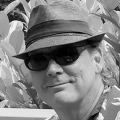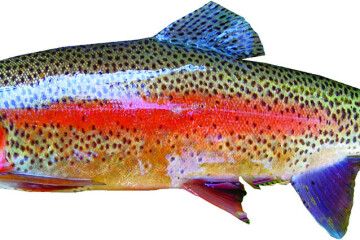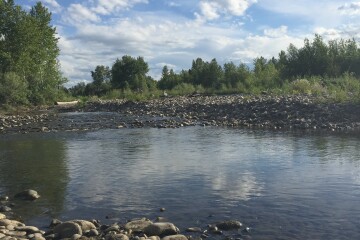When All Else Fails
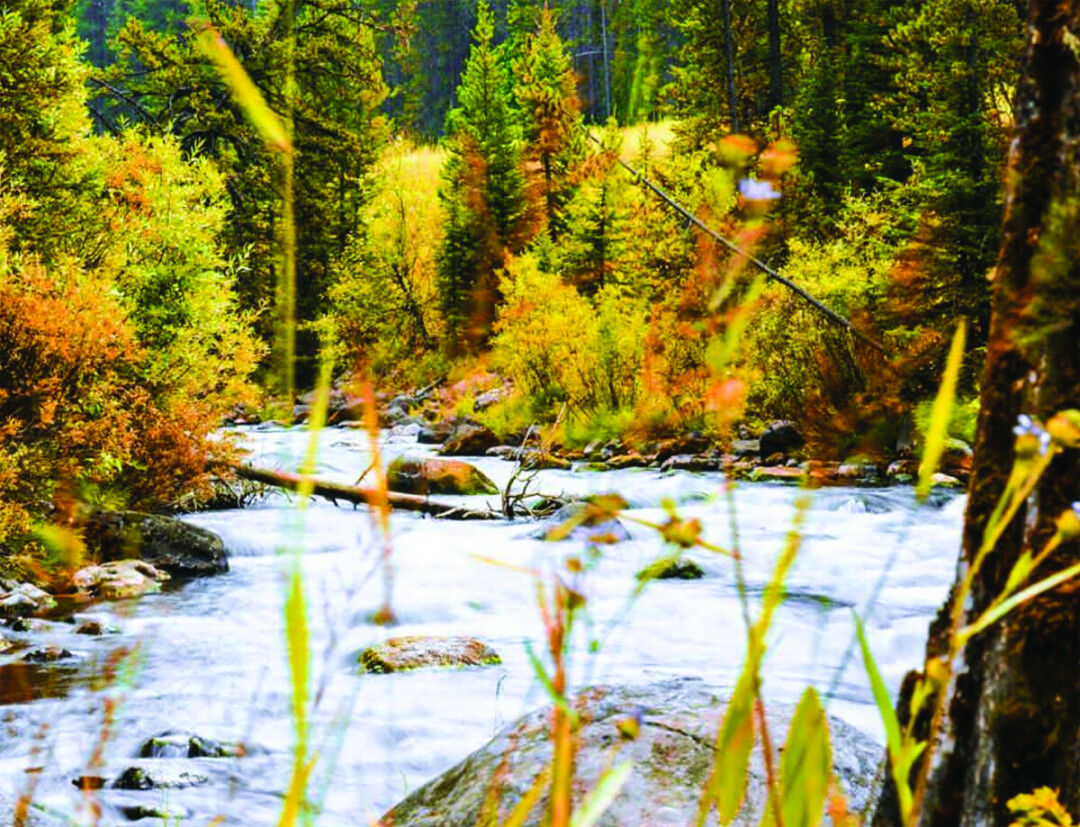
I was writing about autumn in Montana. Specifically, about fly-fishing the Yellowstone River in autumn. I added the cottonwood leaves turning bright orange and yellow and they would let loose from the branches as a breeze came by and they fluttered down onto the river. Every so often a stronger gust would grab large clusters of leaves and they swirled and churned in the air like a vibrant, multicolored snowstorm. The colors of the leaves on the river swirled and moved like paint mixing on a canvas. The sun was high in the sky but there was a cool snap and a clarity to the air and everything near and far was in crystalline focus. The rock formations along this stretch of river tell geologic tales of glacial scouring and orogenic upheaval. In my writing, we had just anchored the drift boat along the shore of a gravel bar to take a lunch break. In real time, I needed to go to the Post Office, so I took a break from writing to go run my errand.
After the post office I swung by one of those parking lot coffee stands where you drive up to the window and place your order and they make your elaborate coffee drink and they always smile and ask, “how’s your day going?” and “what have you got planned for the rest of the day.” I ordered a fancy pumpkin-spice latte. The barista smiled and asked me if I would like whipped cream on top. I figured what the hell so I smiled back and said, “sure.”
“So, what’re you up to today?” she asked. “Are you on your lunch break?”
“Um, yeah,” I responded.
“What do you do for a living?” She was doing whatever it is that they do when they make swanky, complicated coffee drinks.
“I’m a writer,” I said. She was being sociable and friendly so I figured I’d be sociable and friendly too.
“Oh, really?” I supposed that she thought I was a construction guy. I was driving my truck and it was dusty and there was a shovel and some tools in the back. She stopped doing what she was doing and leaned over to the window ledge. “What do you write?”
“Well, right now,” I said. “I’m writing about fly-fishing in the fall.”
“I used to work in an advertising agency,” she said. She had gone back to making my elaborate coffee. “I wrote ad copy. But I would always get writer’s block.” She was adding a dollop of whipped cream on top of the coffee. “Do you ever get writer’s block?”
“Comes with the territory,” I said.
I told her I had read that Joan Didion, a prolific writer who wrote Slouching Toward Bethlehem, The White Album and The Year of Magical Thinking, when she got writer’s block she would put her manuscript into the freezer along with the ice cubes and the frozen peas. I told her that Jim Harrison, who wrote Legends of the Fall, The Woman Lit by Fireflies and Dalva, along with many other novels, short stories, poems and essays, said that one time when he got writer’s block he got up and went on a seven-thousand-mile car drive to clear his head.
“Wow,” she said. She snapped a lid down onto the tall cup and slid one of those heat sleeves onto it. She reached out the window and handed it to me. I reached up, gave her seven dollars and told her keep the change. Expensive coffee.
“Thanks,” she said. “Careful, it’s hot. So, tell me. What do you do when you get writer’s block?”
“Me? I read Hemingway.”
She looked at me with a strange expression. Consternation? Disquiet? I think she was picturing the larger than life, legendary macho guy who wrote about war and the bullfights and big game fishing and hunting lions in Africa. But I was referring to the writer. I think she wanted me to say something like, well, when I get writer’s block, I come down here for a pumpkin-spice latte or I go for a walk along the lakeshore or I pet my cat. Maybe she wanted me to say that I put the manuscript in the freezer alongside the frozen peas and the T-bones. But I told her that I read Ernest Hemingway and that brought her up short.
“Well, thanks for the coffee,” I said. “Have a nice day and hey, when all else fails, read Hemingway.”
When I got back home I went and sat in the chair that looks out over the lake and I drank the fancy coffee and read the first few, well-thumbed pages of A Farewell to Arms. As I read, I could see the pebbles and the boulders and the clear water of the channels. I could see the troops marching by and the dust they raised and I could see the leaves and the dust rising and even though the story took place in Italy the words brought me back to Montana. I remembered that Hemingway wrote a lot about Montana in his novels and short stories and that is where he wrote much of his novel For Whom the Bell Tolls. I thought about the quote on the Hemingway memorial in Idaho, “Best of all he loved the fall.” So, I went back to the computer and back to the Yellowstone river in autumn.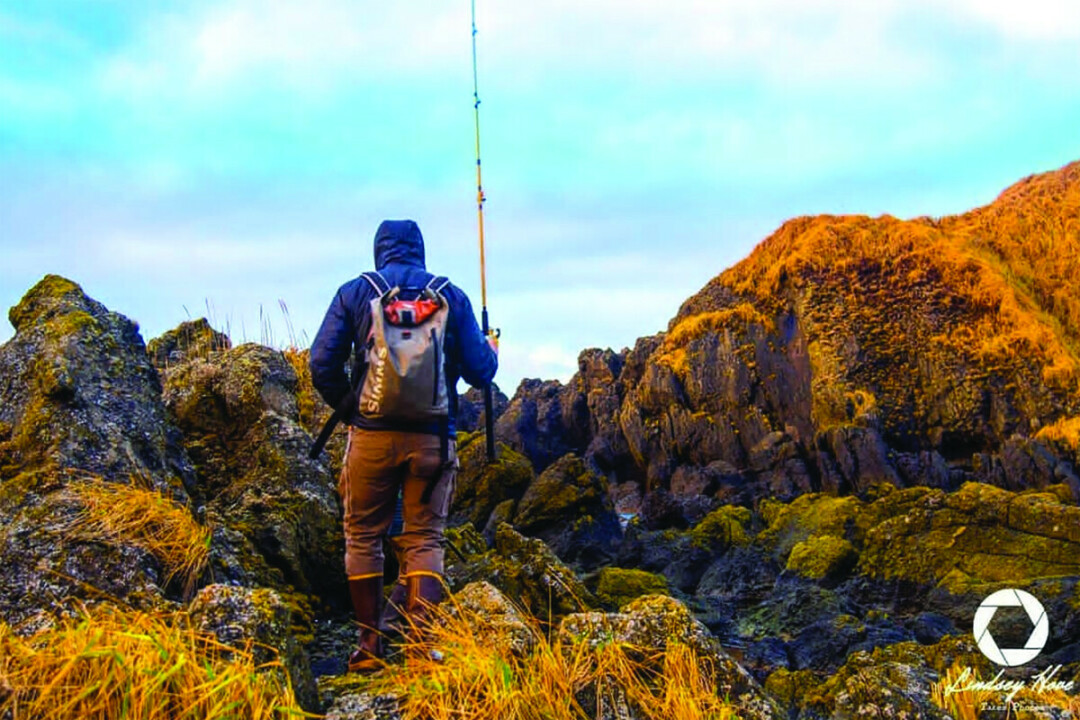
As I continued to write I could see the leaves, vivid in the pure autumn light. Scarlet. Crimson. Gamboge. Maroon. Like flames vibrating along the edge of the river. I had put the rocks and crystals and petrified wood that I had collected into my small pack and stashed the pack in the back of the drift boat and I climbed in. Vince, my guide, pushed off and rowed slowly out into the current and we drifted along quietly. We rounded a bend in the river and Vince pointed downstream with the tip of his oar and nodded his head. He didn’t have to say anything. We had fished together many times and I knew what he meant. There were some trout rising up ahead. I could see the swarming of the hatch fluttering on the surface of the river and the dimples in the water caused by the rising trout as they sucked the tiny insects into their mouths. We tied on a small dry fly and I cast it ahead of the boat. It landed softly on the water and I fed some slack into the line to get a more natural drift and we watched closely as it floated in the current toward the rising trout. And the leaves gathered together into flamboyant rafts of color and rested on the surface of the river and the air was crisp and the autumn breeze picked up and in the distance the mountains stood out clear against the blue of the sky.
